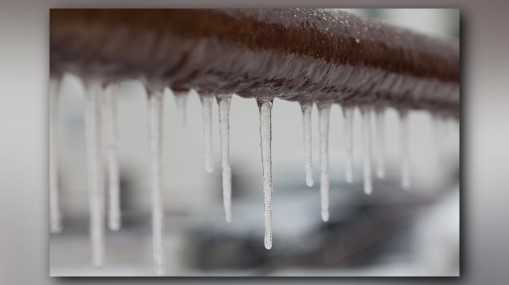Protect Against Frozen Plumbing in Winter: Pro Tips
Protect Against Frozen Plumbing in Winter: Pro Tips
Blog Article
Are you currently interested in info concerning How to Prevent Your Pipes From Freezing?

Cold weather can damage your plumbing, especially by freezing pipelines. Right here's just how to stop it from taking place and what to do if it does.
Intro
As temperatures decrease, the risk of frozen pipelines increases, potentially bring about pricey repairs and water damages. Comprehending just how to prevent icy pipelines is critical for homeowners in cool climates.
Prevention Tips
Insulating vulnerable pipelines
Cover pipelines in insulation sleeves or use heat tape to protect them from freezing temperatures. Concentrate on pipelines in unheated or external locations of the home.
Home heating methods
Maintain indoor spaces appropriately heated up, specifically areas with plumbing. Open closet doors to allow cozy air to circulate around pipes under sinks.
Just how to determine icy pipes
Try to find reduced water flow from taps, unusual smells or sounds from pipelines, and visible frost on subjected pipes.
Long-Term Solutions
Structural adjustments
Take into consideration rerouting pipelines away from outside wall surfaces or unheated areas. Add additional insulation to attics, cellars, and crawl spaces.
Upgrading insulation
Buy top quality insulation for pipes, attics, and wall surfaces. Appropriate insulation aids keep constant temperatures and reduces the risk of icy pipelines.
Securing Exterior Plumbing
Garden pipes and outdoor taps
Separate and drain garden tubes prior to wintertime. Install frost-proof spigots or cover outside faucets with protected caps.
Recognizing Frozen Pipes
What creates pipelines to ice up?
Pipes ice up when subjected to temperatures below 32 ° F (0 ° C) for expanded periods. As water inside the pipelines freezes, it expands, taxing the pipeline wall surfaces and possibly creating them to burst.
Threats and damages
Icy pipelines can cause water interruptions, residential property damages, and costly repairs. Burst pipelines can flooding homes and create considerable structural damage.
Indications of Frozen Water Lines
Recognizing frozen pipelines early can avoid them from rupturing.
What to Do If Your Pipes Freeze
Immediate activities to take
If you think frozen pipes, maintain faucets open up to alleviate stress as the ice thaws. Make use of a hairdryer or towels taken in hot water to thaw pipes gradually.
Final thought
Preventing icy pipes requires proactive procedures and fast reactions. By recognizing the causes, indicators, and preventive measures, homeowners can secure their pipes during winter.
Helpful Tips to Prevent Frozen Pipes this Winter
UNDERSTANDING THE BASICS: WHY PIPES FREEZE AND WHY IT’S A PROBLEM
Water freezing inside pipes is common during the winter months, but understanding why pipes freeze, and the potential problems it can cause is crucial in preventing such incidents. This section will delve into the basics of why pipes freeze and the associated problems that may arise.
THE SCIENCE BEHIND FROZEN PIPES
When water reaches freezing temperatures, it undergoes a physical transformation and solidifies into ice. This expansion of water as it freezes is the primary reason pipes can burst. As the water inside the pipe freezes, it expands, creating immense pressure on the walls. If the pressure becomes too great, the pipe can crack or rupture, leading to leaks and water damage.
FACTORS THAT CONTRIBUTE TO PIPE FREEZING
Low Temperatures: Extremely cold weather, especially below freezing, increases the risk of pipes freezing. Uninsulated or Poorly Insulated Pipes: Pipes located in unheated areas, such as basements, crawl spaces, or attics, are more prone to freezing. Insufficient insulation or lack of insulation altogether exacerbates the problem. Exterior Wall Exposure: Pipes running along exterior walls are susceptible to freezing as they encounter colder temperatures outside. Lack of Heating or Temperature Regulation: Inadequate heating or inconsistent temperature control in your home can contribute to frozen pipes. PROBLEMS CAUSED BY FROZEN PIPES
- Pipe Bursting: As mentioned earlier, the expansion of water as it freezes can cause pipes to burst, resulting in significant water damage.
- Water Damage: When pipes burst, it can lead to flooding and water damage to your property, including walls, ceilings, flooring, and personal belongings.
- Structural Damage: Prolonged exposure to water from burst pipes can compromise the structural integrity of your home, leading to costly repairs.
- Mold and Mildew Growth: Excess moisture from water damage can create a favorable environment for mold and mildew growth, posing health risks to occupants.
- Disrupted Water Supply: Frozen pipes can also result in a complete or partial loss of water supply until the issue is resolved.
WHY CERTAIN PIPES ARE MORE PRONE TO FREEZING
- Location: Pipes located in unheated or poorly insulated areas, such as basements, crawl spaces, attics, or exterior walls, are at higher risk of freezing.
- Exterior Pipes: Outdoor pipes, such as those used for irrigation or exposed plumbing, are particularly vulnerable to freezing as they are directly exposed to the elements.
- Supply Lines: Pipes that carry water from the main water supply into your home, including the main water line, are critical to protect as freezing in these lines can affect your entire plumbing system.
- Underground Pipes: Pipes buried underground, such as those connected to sprinkler systems or outdoor faucets, can be susceptible to freezing if not properly insulated.
https://busybusy.com/blog/helpful-tips-to-prevent-frozen-pipes-this-winter/

Do you really like reading up on How to Prevent Your Pipes From Freezing? Write feedback below. We will be happy to listen to your suggestions about this write up. We hope that you visit us again soon. Are you aware of another person who is intrigued by the subject? Take a moment to promote it. Thanks a bunch for your time. Please stop by our website back soon.
Prices & Booking Report this page